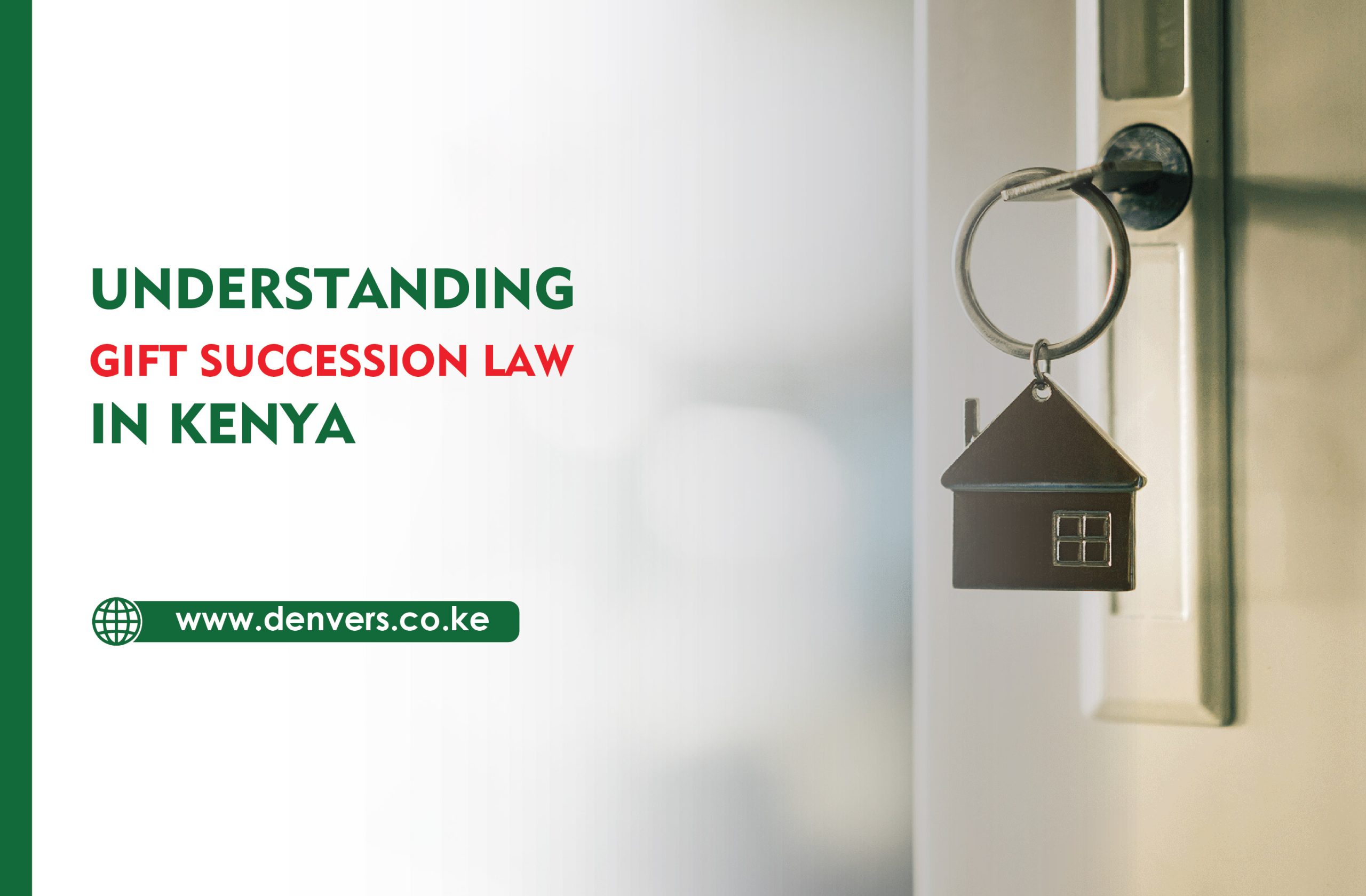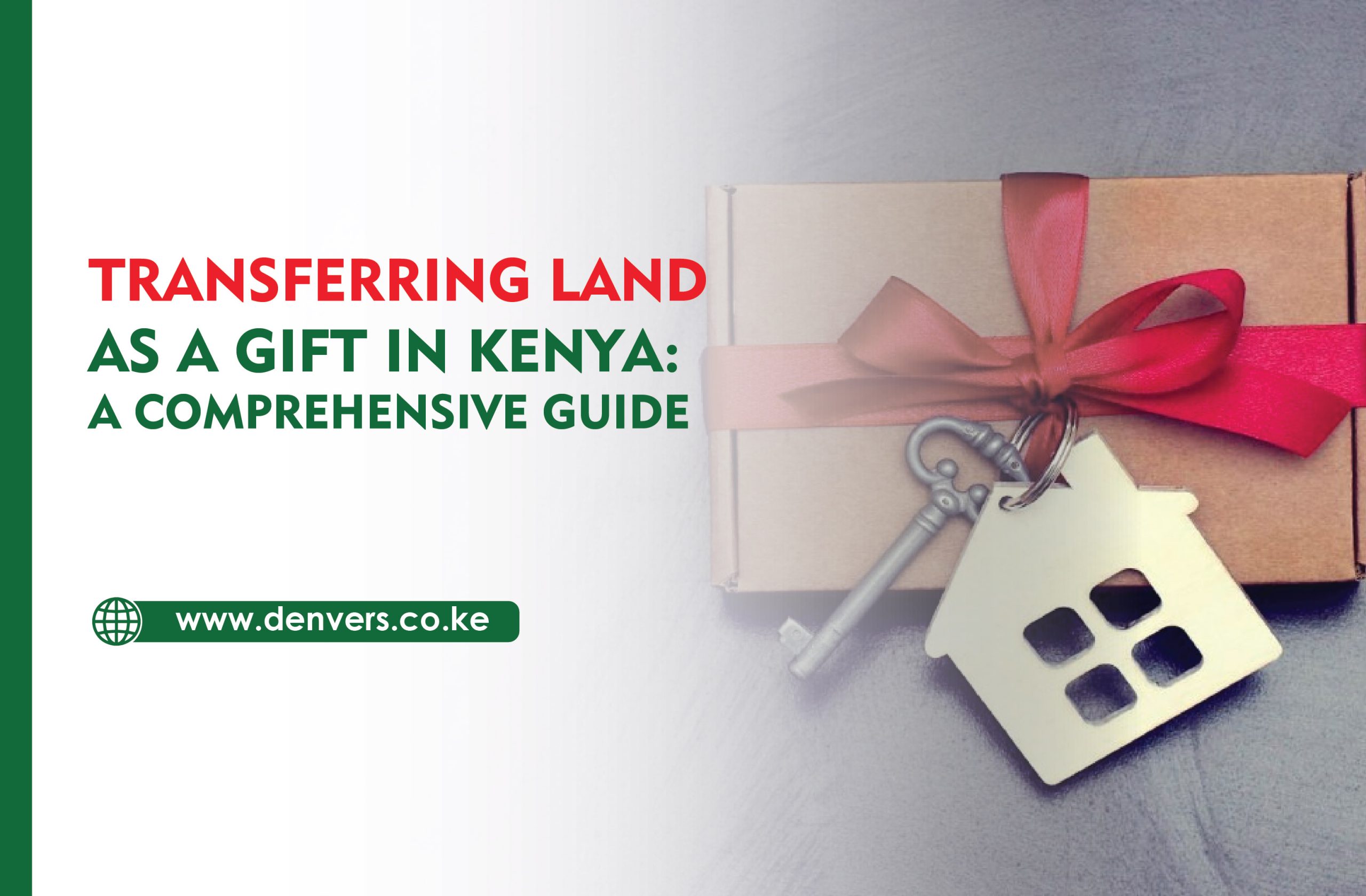Transfer of Land as a Gift in Kenya
Gifting land in Kenya is a generous act that can benefit loved ones and secure their future. However, navigating the legal and procedural aspects can be complex. This comprehensive guide will equip you with the knowledge to transfer land as a gift in Kenya with confidence.
What is a Gift in Transfer of Property?
A gift in transfer of property, specifically land, refers to the voluntary and unconditional transfer of ownership from a donor (the giver) to a donee (the receiver) without any exchange of payment. The donor relinquishes all rights and interests in the land, making the donee the legal owner.
Understanding Gift Succession Law in Kenya

The legal framework for gifting land in Kenya is primarily governed by the Law of Succession Act (Cap 160). This Act recognizes two main types of gifts:
-
Gifts Inter Vivos:
These are gifts made during the donor’s lifetime. They require a written document (deed or instrument) demonstrating the donor’s intention to give the land to the donee. The donee must also accept the gift during the donor’s lifetime.
-
Testamentary Gifts:
These are gifts made through a will, where the land ownership transfers to the donee upon the donor’s death.
How to Gift Land in Kenya

The process of gifting land in Kenya involves several key steps:
-
Preparation:
-
Gather Documents:
You’ll need the land title deed, a copy of the donor’s national ID, and the donee’s national ID card.
-
Engage a Lawyer:
Consulting a qualified lawyer experienced in land transactions is highly recommended. They can guide you through the legalities, draft the necessary documents, and ensure a smooth transfer.
-
-
Drafting the Gift Deed:
This is a crucial document that formalizes transfer of land as a gift in Kenya. The deed should clearly state:
-
Parties Involved:
Names and details of the donor and donee.
-
Description of the Land:
The land’s physical address, size, Land Parcel Identification Number (LPIN), and any encumbrances (restrictions) on the title.
-
Declaration of Gift:
A clear statement from the donor expressing their intention to gift the land freely and without any conditions.
-
Signatures and Witnesses:
Both the donor and donee need to sign the deed in the presence of two witnesses who also sign the document.
-
-
Stamp Duty Payment:
A stamp duty, calculated as a percentage of the land’s market value, needs to be paid to the Kenya Revenue Authority (KRA) before presenting the documents for registration.
-
Land Registry Registration:
The final step involves submitting the completed and stamped Gift Deed along with the title deed and a land transfer form to the relevant Lands Registry Office. The registry will verify the documents and update the land records, reflecting the donee as the new owner.
Transfer of Land as a Gift in Kenya (Transfer Fees)

The cost of transfer of land as a gift in Kenya can vary depending on several factors, including:
-
Land Value:
Stamp duty is calculated as a percentage of the land’s market value. Higher value land will incur a higher stamp duty.
-
Lawyer’s Fees:
Legal fees will vary depending on the lawyer’s experience and the complexity of the case.
-
Registration Fees:
The Land Registry charges nominal fees for processing the transfer documents.
Important Considerations
-
Tax Implications:
There may be potential tax implications for both the donor and the donee. It’s advisable to consult a tax advisor for specific guidance.
-
Joint Ownership:
If the land is co-owned, all co-owners must consent to the gift. Their signatures will be required on the Gift Deed.
-
Capacity of the Donor:
The donor must be of sound mind and legally competent to make the gift.
Conclusion
Transfer of land as a gift in Kenya can be a thoughtful gesture, but it’s crucial to follow the legal procedures to ensure a smooth and successful transfer. Consulting a lawyer and understanding the various costs involved are essential steps. By following the advice in this guide, you can navigate the process with confidence and ensure your loved ones receive your land gift securely.





